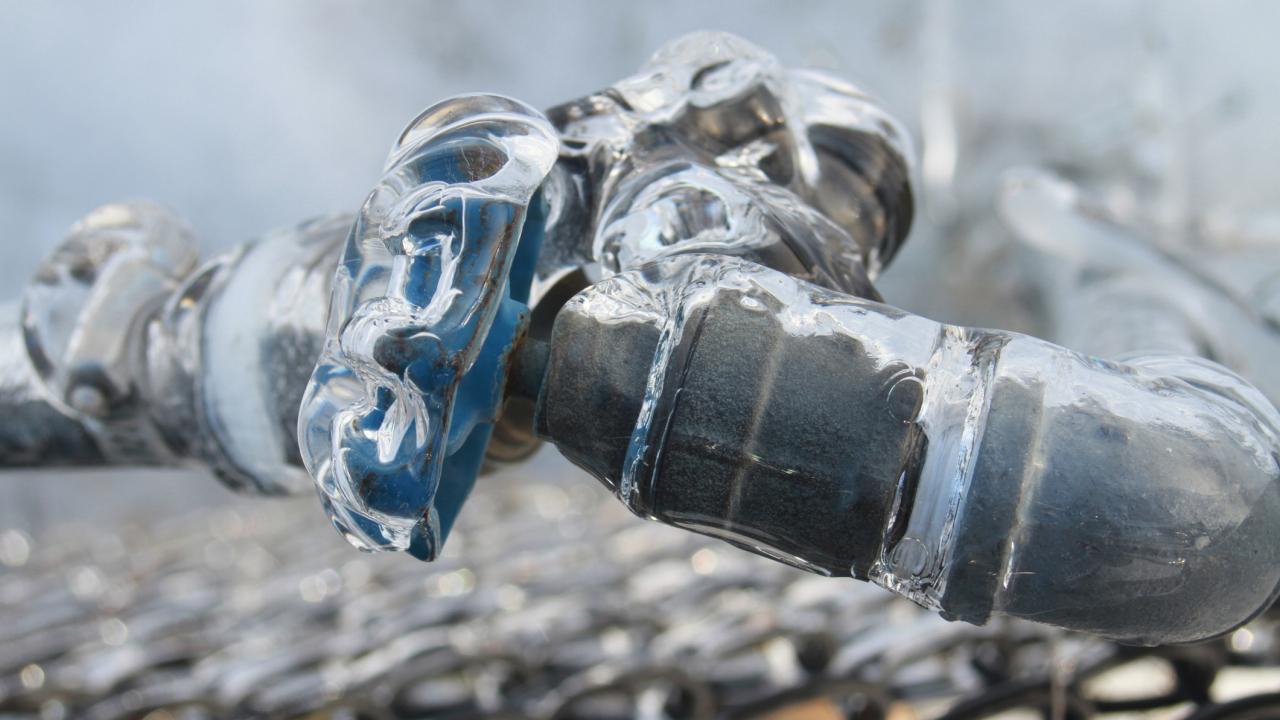Ways to Safeguard Your Pipes from Cold Weather: Professional Guidance
Ways to Safeguard Your Pipes from Cold Weather: Professional Guidance
Blog Article
This great article in the next paragraphs in relation to 6 Ways to Prevent Frozen Pipes is amazingly attention-grabbing. Check it out yourself and see what you think of it.

Winter can wreak havoc on your pipes, particularly by freezing pipelines. Below's just how to prevent it from occurring and what to do if it does.
Introduction
As temperatures decline, the danger of icy pipes increases, potentially leading to pricey repairs and water damage. Comprehending just how to stop icy pipelines is vital for property owners in chilly environments.
Avoidance Tips
Shielding vulnerable pipelines
Wrap pipelines in insulation sleeves or use heat tape to shield them from freezing temperature levels. Concentrate on pipes in unheated or exterior areas of the home.
Home heating methods
Keep interior rooms effectively heated, specifically areas with pipes. Open cabinet doors to enable cozy air to flow around pipes under sinks.
How to determine icy pipelines
Try to find lowered water flow from faucets, unusual odors or sounds from pipes, and visible frost on exposed pipes.
Long-Term Solutions
Structural modifications
Take into consideration rerouting pipelines away from outside wall surfaces or unheated locations. Include added insulation to attics, cellars, and crawl spaces.
Upgrading insulation
Invest in premium insulation for pipelines, attics, and wall surfaces. Correct insulation helps maintain constant temperatures and decreases the threat of frozen pipelines.
Securing Exterior Plumbing
Garden pipes and outdoor faucets
Disconnect and drain pipes yard pipes prior to winter months. Set up frost-proof faucets or cover exterior taps with protected caps.
Comprehending Icy Pipelines
What causes pipes to freeze?
Pipelines ice up when revealed to temperatures below 32 ° F (0 ° C) for expanded durations. As water inside the pipes ices up, it broadens, putting pressure on the pipe wall surfaces and possibly causing them to break.
Threats and problems
Frozen pipelines can lead to water system interruptions, building damages, and costly repair services. Ruptured pipelines can flood homes and cause substantial architectural damage.
Signs of Frozen Piping
Recognizing frozen pipelines early can avoid them from bursting.
What to Do If Your Pipelines Freeze
Immediate activities to take
If you think frozen pipes, keep taps open up to ease stress as the ice melts. Utilize a hairdryer or towels soaked in warm water to thaw pipelines gradually.
Conclusion
Stopping frozen pipelines requires proactive measures and quick reactions. By recognizing the reasons, indications, and safety nets, home owners can protect their plumbing during cold weather.
Helpful Tips to Prevent Frozen Pipes this Winter
UNDERSTANDING THE BASICS: WHY PIPES FREEZE AND WHY IT’S A PROBLEM
Water freezing inside pipes is common during the winter months, but understanding why pipes freeze, and the potential problems it can cause is crucial in preventing such incidents. This section will delve into the basics of why pipes freeze and the associated problems that may arise.
THE SCIENCE BEHIND FROZEN PIPES
When water reaches freezing temperatures, it undergoes a physical transformation and solidifies into ice. This expansion of water as it freezes is the primary reason pipes can burst. As the water inside the pipe freezes, it expands, creating immense pressure on the walls. If the pressure becomes too great, the pipe can crack or rupture, leading to leaks and water damage.
FACTORS THAT CONTRIBUTE TO PIPE FREEZING
Low Temperatures: Extremely cold weather, especially below freezing, increases the risk of pipes freezing. Uninsulated or Poorly Insulated Pipes: Pipes located in unheated areas, such as basements, crawl spaces, or attics, are more prone to freezing. Insufficient insulation or lack of insulation altogether exacerbates the problem. Exterior Wall Exposure: Pipes running along exterior walls are susceptible to freezing as they encounter colder temperatures outside. Lack of Heating or Temperature Regulation: Inadequate heating or inconsistent temperature control in your home can contribute to frozen pipes. PROBLEMS CAUSED BY FROZEN PIPES
- Pipe Bursting: As mentioned earlier, the expansion of water as it freezes can cause pipes to burst, resulting in significant water damage.
- Water Damage: When pipes burst, it can lead to flooding and water damage to your property, including walls, ceilings, flooring, and personal belongings.
- Structural Damage: Prolonged exposure to water from burst pipes can compromise the structural integrity of your home, leading to costly repairs.
- Mold and Mildew Growth: Excess moisture from water damage can create a favorable environment for mold and mildew growth, posing health risks to occupants.
- Disrupted Water Supply: Frozen pipes can also result in a complete or partial loss of water supply until the issue is resolved.
WHY CERTAIN PIPES ARE MORE PRONE TO FREEZING
- Location: Pipes located in unheated or poorly insulated areas, such as basements, crawl spaces, attics, or exterior walls, are at higher risk of freezing.
- Exterior Pipes: Outdoor pipes, such as those used for irrigation or exposed plumbing, are particularly vulnerable to freezing as they are directly exposed to the elements.
- Supply Lines: Pipes that carry water from the main water supply into your home, including the main water line, are critical to protect as freezing in these lines can affect your entire plumbing system.
- Underground Pipes: Pipes buried underground, such as those connected to sprinkler systems or outdoor faucets, can be susceptible to freezing if not properly insulated.
https://busybusy.com/blog/helpful-tips-to-prevent-frozen-pipes-this-winter/

I recently found that blog entry about Winter Plumbing Precautions: Preventing Frozen Pipes when doing a search on the web. Are you aware of anybody else who is interested by the topic? Do not hesitate to promote it. I thank you for reading our article about Winter Plumbing Precautions: Preventing Frozen Pipes.
Quote Report this page